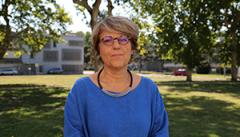
Research
A research school dedicated to water issues? It’s been done!
Produce senior managers in water-related topics, at the interface of several disciplines and capable of proposing adaptable solutions in the face of a future that is impossible to predict. That is the aim of the H2O’Lyon Research School, run by the University of Lyon. One member of the school’s management team is: Sylvie Barraud, Lecturer at INSA Lyon and researcher at the laboratoire DEEP (Waste, Water, Environment, Pollution).
Water, that precious commodity. Will it be rare in future? Uncontrollable or, on the contrary, under control? Will it be associated with more drought or more rainfall? These are all questions that need answers.
‘We have been on the alert about water for many years. It is our duty to look ahead and, above all, to find adaptable solutions to develop and manage our land’. The tone has been set by Sylvie Barraud, lecturer at INSA Lyon and researcher at the laboratoire DEEP.
A year ago, this specialist in rainwater management embarked on a new adventure. Together with Christophe Douady, Director of LEHNA (Laboratory for the Ecology of Natural and Man-made Hydrosystems - UMR (joint research centre) CNRS (National Centre for Scientific Research) 5023) and Hervé Piegay (Laboratoire Environnement Ville Société (Environment City Society) - UMR CNRS 5600), they responded to the ‘University Research School’ (EUR) call for projects under the third component of the investments for the future programme (PIA3) launched by the government. Their goal: to strengthen the impact and attractiveness of research and education on all water-related topics, especially at the international level.
‘We realised that in research, we had been working on an interdisciplinary basis for a long time, but in education, different subject areas remained separate. The PIA programme has made us aware of the full extent of our education in the field, and we have counted up to 17 courses on offer in Lyon and Saint-Étienne that deal with water or related topics! Aligning our course offerings seemed like the obvious thing to do, especially to make ourselves more visible and better understood internationally’, explains Sylvie Barraud.
That was how the ‘University Research School on Water Sciences and Hydrosystems’ (H2O’Lyon) project came about, thanks to the power of a whole water community founded more than 30 years ago.
‘Indeed, the adventure began in the early 1980s with the emergence of local organisations such as the OTHU (Urban Hydrology Monitoring Unit), which I led, the ZABR (Rhône Basin Workshop Area), the GRAIE (water research, technical coordination and information group) and many others. In June 2017, as part of the second component of the PIA scheme, the École Urbaine de Lyon (Lyon Urban School) was founded, run by Michel Lussault. We were consistent in our vision for the H2O’Lyon research school, particularly on the topic of the Anthropocene and the IMU LabEx research unit on cities’, says the co-director.
And it was with this approach to structuring and aligning the education and research offerings of Lyon and Saint-Étienne that the project won the call for tenders and €8.5 million in funding. ‘Enough to cover research projects, Master’s degrees and related supervision, summer schools, multidisciplinary post-docs and educational publications. The production of senior managers in our field is a national, European and international challenge, and working together will make it possible to provide lasting solutions, enriched by interdisciplinarity’, says Sylvie Barraud.
10 higher education institutions are involved in this adventure, bringing together Humanities and Social Sciences, Physical and Engineering Sciences, and Life and Environmental Sciences to understand all the issues related to the various water topics. The H2O’Lyon Research School is due to open in September 2018, with the initial aim of creating an H2O certification.
‘There’s an incredible energy around this great adventure, with the little spark of those who know they’re going to do something fun. Perhaps this enthusiasm was born because we have known each other for a long time and our research is already well known’, concludes Sylvie Barraud.
Keywords (tags)
News list
« L’IA générative nous oblige à regarder la réalité des pratiques étudiantes en face »

